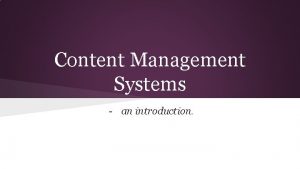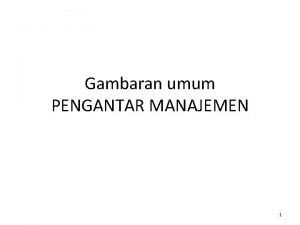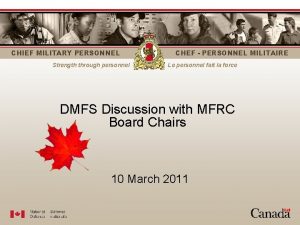Chapter 10 Personnel Personnel overview Personnel management is








- Slides: 8

Chapter 10 Personnel

Personnel overview • Personnel management is critical to improving service delivery at all levels of Government • At provincial level… – Good progress in establishing a framework for personnel management – Personnel costs are being managed • At local government level… – Management framework still weak – Personnel costs still crowding out spending on goods and services and capex

Provincial personnel trends • Real decline in personnel costs from 1996/97 to 2001/02 • Decline in personnel numbers over the same period • Moderate increase in unit labour costs over the period • Moderate real growth in personnel spending going forward aimed at: – Increasing employment in health – Provision for pay progression and performance-related pay

Provincial personnel policy issues • Poor provinces still spending a lot on surplus staff – Resulting in lower capex and poor staffing in education and health • Need to increase employment in health and welfare services – Especially medical professionals, social workers – Revised pay system required • Need appropriate performance-related pay systems • Need to decentralise personnel management lower down the chain – Giving hospital managers real powers – Increasing powers of school governing boards

Municipal personnel trends • Local government employs 210 000 people – 50% are found in the 6 metropolitan councils – 7% are employed by district councils – 43% are employed by local municipalities • 30% of staff are found in trading services such as electricity, water, sewerage and sanitation and refuse collection • Remainder are employed in parks, culture and recreation, emergency services, transport, corporate services and planning • Personnel costs rising as percentage of operating budgets • Generally, municipalities have higher unit labour costs than provinces

Trends in employment costs • Personnel costs have risen significantly both in real terms and as a percentage of total spending – Personnel costs are 30% of expenditure – This percentage is higher if bulk purchases and intra-municipal transfers are excluded • Two main factors driving personnel costs – Amalgamation of smaller municipalities into larger ones and the resultant pressure to equalise salaries – Generous leave pay-outs, retirement provisions and medical aid benefits - account for up to 40% of personnel costs • Pre-1994 agreements mainly responsible for extremely generous benefits • Senior management costs in metros generally high

Municipal personnel policy issues • Rising personnel costs – Costs of merging previously separate municipalities with different pay systems and scales • High cost structure of employee benefits – Employer contributions for medical aid and pension are high in relation to provinces, private sector – Contingent liability with respect to accrued leave – SALGA is proposing norms to bring benefits in line with national and provincial government

Municipal personnel policy issues • Need to increase skill level of staff in smaller municipalities • Need to factor in personnel implications of: – – Creating municipal entities Electricity distribution industry restructuring Water industry restructuring Changes in powers and functions of district and primary municipalities
 Chapter 1 an overview of financial management
Chapter 1 an overview of financial management Content management system features
Content management system features Introduction to hrm
Introduction to hrm Project management overview
Project management overview Gym management system project introduction
Gym management system project introduction The forrester wave real time interaction management q2 2017
The forrester wave real time interaction management q2 2017 Management overview
Management overview 4 prinsip taylor dalam tahapan
4 prinsip taylor dalam tahapan Overview of financial management
Overview of financial management















